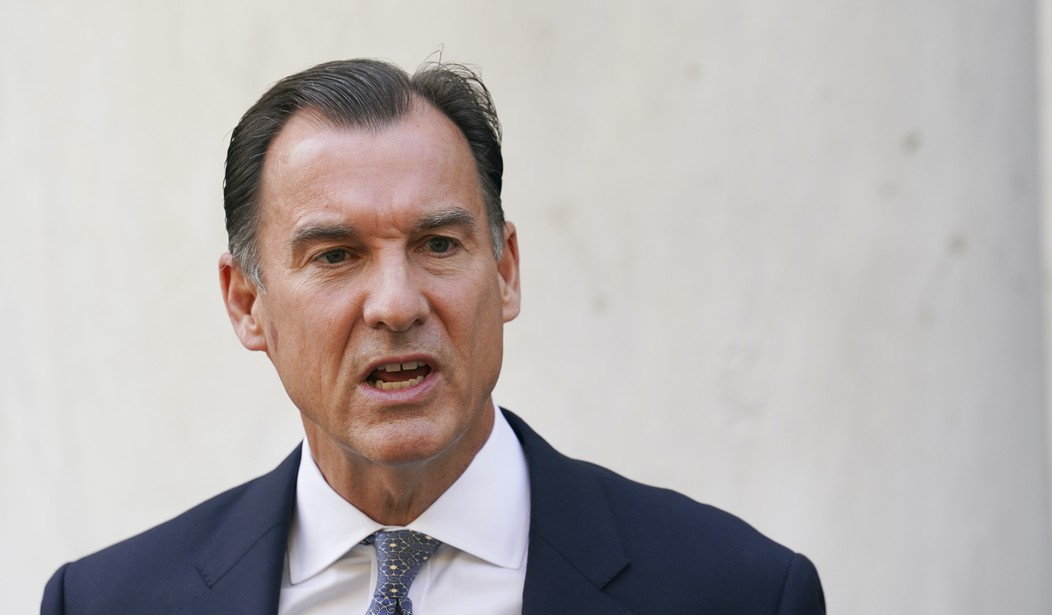What do you do when one of your policy proposals proves to be rather unpopular with rank and file Americans? As with any savvy marketing campaign, you simply rebrand it. That’s apparently what Democratic Congressman Tom Suozzi of New York is planning. Nearly all of the Democrats have been following Elizabeth Warren’s lead and calling for a “wealth tax” on the country’s most successful earners, but with virtually no GOP support and probably not even fifty votes in the Senate (thanks, King Joseph!), it doesn’t seem to be going anywhere. So Suozzi is now pitching the idea of a “one-time tax” on the very wealthy, but he wants to give it a more appealing name. So how about a “patriot tax?” You can just hear the band warming up to play the National Anthem now, can’t you? (The Hill)
Rep. Tom Suozzi (D-N.Y.), a member of the tax-writing House Ways and Means Committee, said that he’s exploring the idea of a one-time tax on the wealth of the richest Americans, as Democrats seek to increase taxes on the rich in order to pay for spending priorities.
In an interview with The Hill on Friday, Suozzi said he’s in the early stages of looking at what he called a “patriot tax.” This would be a one-time surcharge of 2.5 percent on wealth between $50 million and $100 million, and a 5 percent tax on wealth above $100 million. Wealthy people would be able to pay the tax over five years.
Research provided by Suozzi’s office estimates that such a tax could raise about $450 billion.
Aside from just being a terrible idea to begin with, would this proposal even qualify as a “tax” under the law? Taxes are levied on an ongoing basis or as a result of individual actions, such as sales taxes. In his remarks to The Hill, Suozzi even refers to it as a “surcharge.” We do have some one-time taxes on the books, such as the death tax and gift taxes (neither of which we should have, by the way). But again, those are tied to specific events involving the estate of a person who dies or the gifting of property or money beyond a set value.
What Suozzi is proposing is essentially a one-time penalty on being wealthy or successful. It wouldn’t qualify as an income tax because it ignores the taxpayer’s income for the year and focuses on what they have already accumulated over the course of their life. And not to put too fine of a point on this, but all of that money has already been taxed.
Is Suozzi somehow under the impression that if he slaps the word “patriot” on this scheme that some Republicans will be unable to prevent themselves from reflexively voting for it? If so, he may be in for a significant disappointment. Then again, I’m old enough to remember when almost all Republicans supported the Patriot Act (much to my dismay), so perhaps I shouldn’t be making so many assumptions.
Since this idea has been put on the table and you rarely see a Democrat who’s ever considered a tax they didn’t like, perhaps we should game this out. Let’s assume for the moment that enough votes could be found to pass Suozzi’s “patriot tax” and it somehow survived a court challenge. What would happen next? As we’ve seen during various wealth tax debates, you would almost certainly see a lot of wealthy people fleeing the country for more tax-friendly climes. We already saw the flight of the millionaires out of New York City to places like Texas and Florida when the cost of doing business in the Big Apple grew too high. This would be the same thing, only scaled up to a national level.
For the rich who remained in the country, there would be an immediate incentive created to ship as much of their wealth offshore as was legally possible. (And probably illegally in some cases.) Draining money out of the system while you’re simultaneously driving up taxes and inflation doesn’t sound like much of a formula for success, does it? If anything, people will be having flashbacks to the Jimmy Carter era.
And speaking of New York City, Suozzi’s district is in Queens. While there are plenty of middle-class neighborhoods there (or what passes for middle-class in Gotham, anyway) it’s also home to a lot of people who will wind up falling into the wealth category that the congressman wants to target with this surcharge. And they tend to be the ones who finance political campaigns. Perhaps he hasn’t really thought this idea through fully. Just saying…








Join the conversation as a VIP Member